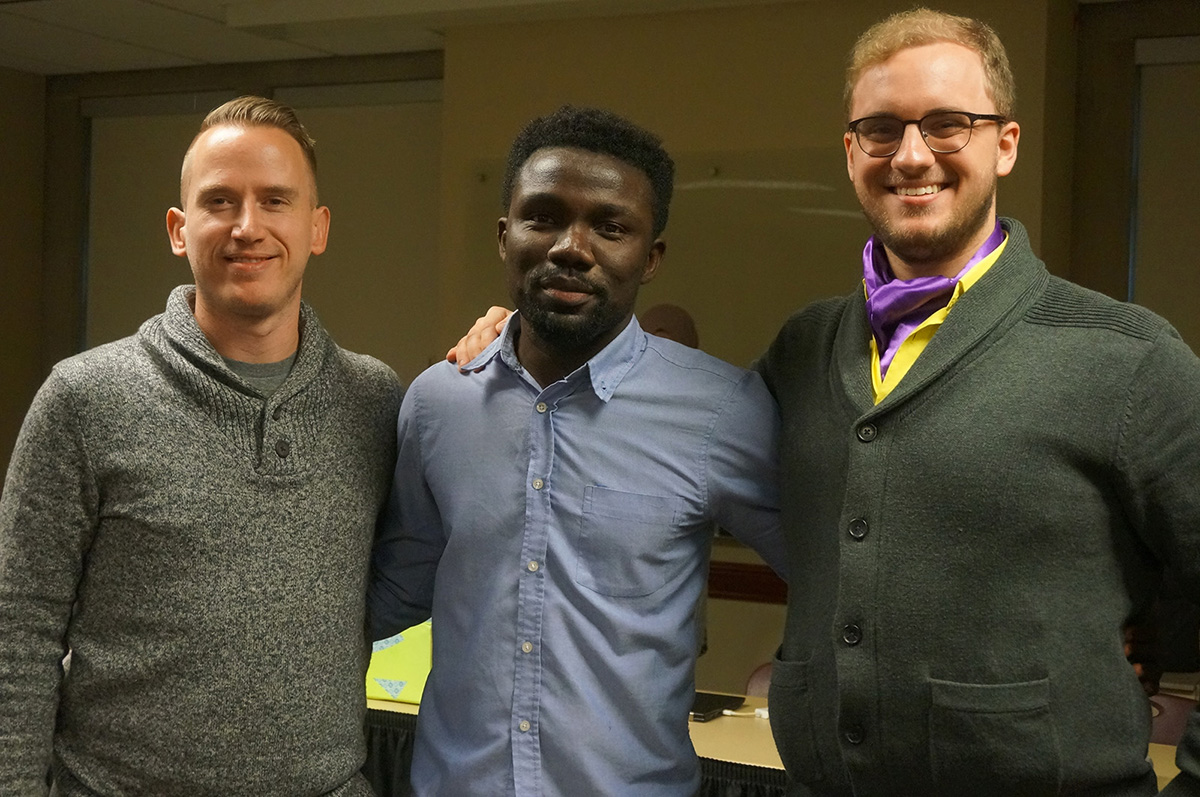
If you intend to teach English or do currently, you will work through the Office of Teacher Education Services in the Teachers College to obtain your license. Review requirements.
The Master of Arts in English studies allows students to pursue graduate studies in English in more than one discipline. Students may wish to continue coursework in creative writing, in literary theory, in digital literacies, or in preparation to teach English as a second language (TESOL).
The degree is designed to serve students wishing to prepare for doctoral work, satisfy requirements for a teaching license, or take a terminal master’s degree. In close consultation with your faculty advisor, you can design the program that makes sense for your personal and professional goals.
Our Alumni
Learn more about what our graduate-program alumni do.
Download PDF
We’re asked this question all the time. Our answer: A lot. You will learn skills that transfer across hundreds of possible careers and industries—some of which may not even exist yet. Our graduates go on to work in marketing, publishing, non-profit fundraising, speechwriting, as well as in countless other fulfilling occupations.
Explore Careers
Program Benefits
You’ll construct knowledge in close collaboration directly with your classmates and faculty members who boast impressive publication records. Your professors will bring to the classroom their excitement for researching and interpreting the cultural force of literature.
For example, Professor Joyce Huff brings her interdisciplinary specializations in Victorian Literature and Fat Studies to the graduate classroom in her recent Victorian Studies seminar titled, “Victorian Appetites.”
Professor Emily Rutter’s monographs Invisible Ball of Dreams: Literary Representations of Baseball behind the Color Line and Constructions of the Blues Muse: Blues Tributes in Twentieth- and Twenty-First-Century American Poetry inform her curriculum in seminars with topics including “Correspondences between Poetry and Music” and “African American Literature and Theories of Race.”
Professor Katy Didden, author of The Glacier’s Wake, brings her interest in the relationship between poetry and the environment to her graduate workshop on “Ecopoetics.”
Because this concentration draws upon all the subdisciplines in English, you might work with any member of our graduate faculty.
Read profiles of our faculty.
You’ll have the opportunity to attend the annual Practical Criticism Midwest (PCM) Conference, which gives you practice with academic professionalization.
Past PCM panels have included topics such as Language and Alterity, Canons and Margins, and Constructing Narratives. Participants also have the opportunity to attend keynote addresses from English department alumni now using their graduate degrees in a variety of professions.
This degree emphasizes pedagogy and includes a three-credit class devoted to teaching literature in higher education.
You may also pursue a graduate assistantship with the Freshman Writing Program, which has its own robust pedagogy-training program.
Major Requirements
Our MA in English includes a core requirement of 15 to 29 credits in English. You will round out your degree with a minor or selection of electives, plus a research paper or thesis.
Total Credits
32
Courses
The English Department offers a variety of courses in Creative Writing, Literature, Linguistics, and Rhetoric and Composition. A few of the classes you may take include:
- ENG 601 Research in English Studies
- ENG 621 Meaning and Structure in English
- ENG 636 Reading as Writers
Workshops in:
- Creative Writing
- Literature
- English Language Arts
Literature of:
- American- Early, 20th Century, Contemporary, American Authors, African American
- British- British Authors, Early Studies, Renaissance and 17th Century, Early 20th Century, Contemporary
- Studies of Gender, Culture, Romantic, Victorian, Post-Colonial
Rhetoric of:
- Classical
- Medieval and Early Modern
- 19th Century
- Contemporary
Linguistics of:
- Sociolinguistics
- Applied Linguistics
- Historical Linguistics
For a complete list of all the courses you will take and their descriptions, consult our Graduate Catalog.
View Catalog
Paying for Your Education
A graduate assistantship is an excellent opportunity to gain meaningful professional experience while helping cover the costs of your degree. Learn more.
Ready to Apply?
Review our admission requirements, dates and deadlines, and instructions. Then complete our online application.
Applications for the fall semester will be accepted until July 10; applications for the spring semester will be accepted until November 1. To ensure full consideration for academic-year graduate assistantships, applications must be complete by January 31.
More Information
If you would like to learn more about this program or about Ball State Graduate School in general, please complete our online form to request more information. Or if you’d like to speak with someone in our department directly by phone or email, please contact us.